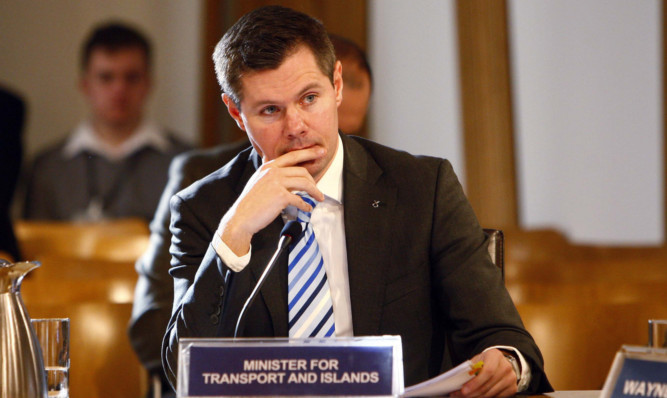Cash that could have been spent on Forth Road Bridge repairs was squandered on toll booths, the Transport Secretary has suggested.
MSPs are holding an inquiry into a structural fault that led to the closure of the Fife to Edinburgh crossing for nearly three weeks.
Derek Mackay said works to the area where the defect was found were “not considered a high priority” by the Forth Estuary Transport Authority (Feta), which was in charge of bridge maintenance and which relied on Government grants after tolls were abolished in 2008.
When he appeared before the Holyrood committee on Wednesday, Mr Mackay suggested money was not always well spent, indicating the millions ploughed into the replacement of toll booths that were later torn down.
“I’m not here to criticise the spending decisions of Feta but to put it into context,” he said.
“Feta replaced the toll collection equipment in 2005-06 at a cost of £8.5 million, when the abolition of tolls in 2008 cost £2m to remodel the plaza area to allow free-flowing traffic,” he told MSPs.
Mr Mackay sought to defend the Scottish Government’s record on funding after Feta’s capital budget was cut by 58% in 2011 amid a UK-wide squeeze on public spending.
He said prioritisation for works was a matter for Feta, but added the Scottish Government would have funded “anything that was critical in terms of the health of the bridge”.
Mr Mackay went through a list of bridge maintenance that has been completed since 2007.
“Feta deemed virtually all as more pressing than the postponed and unrelated full replacement of the truss end links,” he added.
“A total of £107.8m has therefore been spent on the bridge in that period, equating to over £110m including reserves. That is not a record of under investment.”
Earlier at the inquiry, Barry Colford, Feta’s former bridgemaster, said the list of the works was not a “wish list” but what “needed to be done”.
Mr Mackay said there were “financial pressures that everyone in public life faced”, but added: “I would challenge any suggestion that the bridge was under-funded.”
